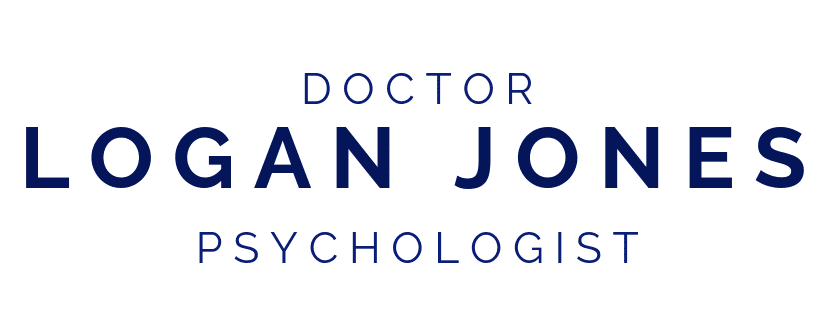4 Key Concepts About FORGIVENESS and its Power to Heal
4 Key Concepts About FORGIVENESS and its Power to Heal
Forgiveness—it’s one of the most powerful tools at our disposal for healing.
Unfortunately, it is also one of the most widely misunderstood concepts.
What is forgiveness?
Forgiveness is the willing decision to release negative emotions and attitudes toward an offensive person or situation. To forgive is to let go of the toxic energy around a painful situation and make room for light, a refreshed perspective, and new, more hopeful possibilities.
Oftentimes, after we have been hurt, the furthest thing from our minds may be extending compassion towards those who have hurt or disappointed us. Forgiveness seems even more difficult when someone refuses to apologize or acknowledge how what they have done has hurt you — or even worse, when they attempt to shift the blame onto you. Whether the harm is physical or emotional, intentional or by accident, forgiveness is rarely our primary, intuitive response. Ironically, it is one of the most valuable things we can offer others, and more importantly, to ourselves.
Below, find four key concepts about forgiveness and how it is a radically freeing and empowering practice.
Concept #1: Forgiveness does not equal absolution
Perhaps the main reason we resist forgiving others is because we believe that to forgive means to absolve the person who has hurt us of any and all responsibility for their actions. We think that to forgive means to say, “what you did to me is okay,” but that could not be further from the truth.
Forgiveness does not exempt anyone from their wrongful actions. It is also not a “get out of jail for free” card. Instead, it frees the hurt party from the heavy burden of carrying around old pain, and allows for healing to resume.
Rather than exonerating the guilty party from any blame, forgiveness simply transfers the energetic power from the person who has acted wrongly to the person who needs to release the burden, thus empowering the forgiver to reclaim ownership of the narrative so that healing can occur and peace can be found.
Concept #2: Forgiveness is not the same as “forgetting”
Forgiveness also does not mean “forgetting.” If we “forget” that something unjust has happened, we risk not learning a valuable lesson – that some people hurt us and will continue to hurt us. Therefore, we should learn to recognize the signs and character traits of people who “do people wrong” so that we are better prepared in life. In fact, it is recognizing the guilty or toxic behaviors of unhealthy people that allows us to set healthy, loving boundaries moving forward.
Sometimes, we remember what happened in order to avoid letting it happen again. When we learn from what happened, we set ourselves up for a better result later in life.

Concept #3: Forgiveness does not make you a weak person
Sometimes when we feel moved to forgive, we judge ourselves as being a pushover or weak-minded. We may even hesitate to forgive out of fear of what others will think. Might our friends or families judge us if we choose to reconcile with an ex-lover or former friend? How can we look ourselves in the eye if we forgive someone who has hurt us so deeply?
When we forgive, we transition from victim to survivor, and we demonstrate the strength it takes to reclaim control of our emotions, and more importantly, our lives.
We often mistake the willingness to be vulnerable as a sign of weakness. In truth, it takes a great deal of courage, strength of spirit, and wisdom to forgive an injustice. Think about it — it is easy to harden our hearts and put up walls after we have suffered. To remain open-hearted and open-minded after pain is the real challenge, and a testament to emotional resilience and maturity.
Concept #4: Forgiveness is an act of self-love
One of the most common misconceptions about forgiveness is that it is about the other person. We think of forgiveness as something a guilty person seeks to ease their conscience. On the contrary, forgiveness has way more to do with respect and compassion for the self than it does with any sort of feelings about the other person.
By forgiving, we assert that nothing comes before our own peace of mind, not even the need to be right or feel vindicated through blaming another.
Blaming the other person is an attack on ourselves. Each time we blame someone, we reopen old wounds and relive the hurt. Meanwhile, pointing the finger (even with just cause) does very little to the person who has hurt us; it brings no new justice, no new answers. It only ensures that we remain stuck in the cycle of suffering caused by the initial affront.
When we choose to forgive, we interrupt that cycle by leaving that pain in the past. So the next time you struggle to forgive, remember, forgiveness is a radical act of self-care in that it restores our peace and faith in the truth that there is always peace and healing after pain.
DO YOU NEED ASSISTANCE FORGIVING SOMEONE OR RELEASING OLD PAIN?
Dr. Logan Jones is a psychotherapist in central Manhattan. He provides therapy for stress, anxiety, depression, intimacy issues, and coaching for entrepreneurs, creative professionals, and adults who want to make positive changes in their lives. His passion is to help people find healthier perceptions of themselves and strengthen their relationships so that they may feel more peaceful, complete, whole, and safe. His practice is located near Flatiron, Chelsea, NoMad, Union Square and the West Village. Contact him today for a complimentary phone consultation.
Follow Dr. Logan Jones on Instagram for more daily inspiration: @drloganjones

No matter what you’re going through, whether depression, anxiety, or PTSD, there is hope. If you are looking for therapy in NYC his psychotherapy practice is located in central Manhattan near Flatiron, West Village, NoMad Chelsea, or Union Square.


